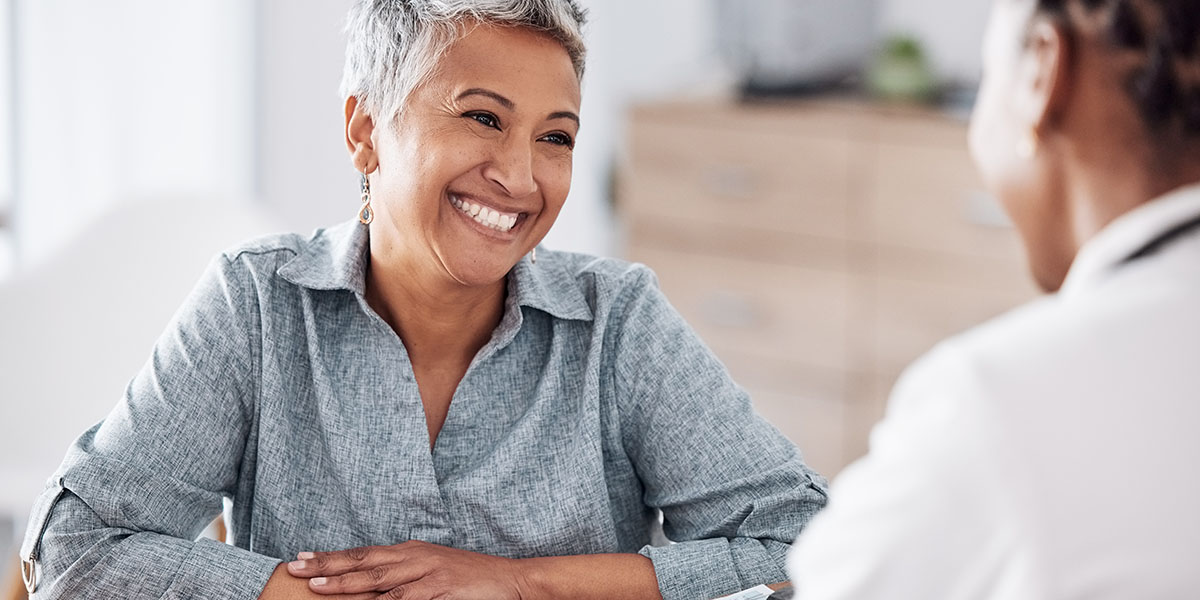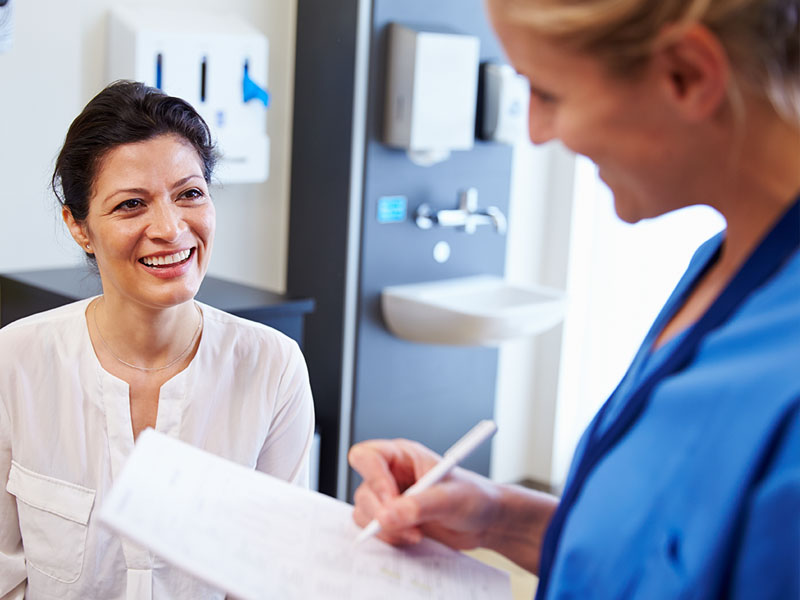
Changes in your body in the years around menopause may raise your risk for certain health problems. Low levels of estrogen and other changes related to aging (like gaining weight) can raise your risk of heart disease, stroke, and osteoporosis.
How will menopause affect my health?
After menopause, your ovaries make very little estrogen. Women who have gone through menopause have very low estrogen levels. Low levels of estrogen and progesterone raise your risk for certain health problems after menopause. Other health problems may happen naturally as you age.
Examples of common health problems in the years after menopause include:
- Heart disease. Before age 55, women have a lower risk of heart disease than men. Estrogen helps keep blood vessels relaxed and open and helps the body maintain a healthy balance of good and bad cholesterol. Without estrogen, cholesterol may start building up on artery walls leading to the heart. After menopause, women reach the same risk for heart disease as men of the same age.
- Stroke. Your risk for stroke doubles every decade after age 55. The lower levels of estrogen in your body may play a role in cholesterol buildup on artery walls leading to the brain.
- Osteoporosis. Having less estrogen after menopause causes you to lose bone mass much more quickly than you did before, which puts you at risk for osteoporosis. Osteoporosis is a condition that causes your bones to become brittle and weak and break easily. Breaking a bone from osteoporosis increases your risk of bone loss in your spine and hip fractures.
- Urinary incontinence. About half of postmenopausal women have trouble holding in their urine. Urinary incontinence, however, is not related to decreasing estrogen levels or menopause. Rather, overweight, diabetes, and increasing age are factors associated with more frequent urinary incontinence episodes. Learn about treatment options for incontinence.
- Oral issues. Dry mouth and an increased risk for cavities are more common after menopause. Learn more about oral health.
Does hormone therapy during menopause prevent these health problems?
Menopausal hormone therapy is currently approved to help relieve your menopause symptoms, such as hot flashes and vaginal dryness. Learn more about menopausal hormone therapy.
 What screenings do I need after menopause?
What screenings do I need after menopause?
All women need regular checkups and screening tests throughout their lives. Most women can help take care of their health with:
- Regular mammograms after age 40 through age 75.
- Regular Pap tests, even after menopause. You should get a Pap test and an HPV test together every five years if you have a cervix, until you are 65 and have had three clear tests in a row.
- Regular height measurements to detect loss of height due to bone loss.
- Blood, urine, and other tests to screen for risk of diabetes and heart disease.
- Blood pressure, cholesterol, and other tests your health care provider recommends.
Ask your health care provider about vaccines for flu, COVID-19, and any others you may need. Vaccinations are also available for pneumonia, shingles, RSV, and other diseases and infections.
Your health care provider might also recommend other tests, depending on your health. For example, you might need to see a specialist for some specific problems, like urinary incontinence.
How can I stay healthy during and after menopause?
There are many important steps you can take to build your health in the years around menopause.
- Quit smoking. Quitting smoking is the most important step you can take to be healthier. Smoking hurts your health in many ways, including by damaging your bones and causing heart disease and many types of cancer in women. Stay away from secondhand smoke and get help quitting if you need it. Visit women.smokefree.gov for women-specific information, tips, and tools.
- Be active. Getting at least 30 minutes of physical activity on most days of the week is one of the best ways you can be healthier. Physical activity can help your bones, heart, and mood. Exercise doesn't have to be complicated. Brisk walking and regular household chores are good for your health. Ask your health care provider about what activities are right for you. Aim to do:
- At least 2 hours and 30 minutes a week of moderate aerobic physical activity or 1 hour and 15 minutes of vigorous aerobic activity or some combination of the two
- Exercises that build muscle strength, including weight-bearing exercises, on two days each week
Find exercise and physical activity tips for older adults from the National Institute on Aging at NIH.
- Eat well. Getting vitamins, minerals, fiber, and other essential nutrients is just as important as when you were younger. But older women usually need fewer calories for energy. Find out how many calories you need each day, based on your age, height, weight, and activity level.
- Talk to your health care provider about dietary supplements.
- Women older than 50 need 2.4 micrograms of vitamin B-12 and 1.5 milligrams of vitamin B-6 each day. Ask your health care provider if you need a vitamin supplement.
- After menopause, women need more calcium to maintain bone health. Women 51 and older should get 1,200 milligrams of calcium each day. Vitamin D also is important to bone health. Doctors also recommend that women 51 to 70 get 600 international units (IU) of vitamin D each day and that women ages 71 or older get 800 IU of vitamin D each day. Ask your health care provider if you need a calcium supplement or if you need more vitamin D.
- Practice safe sex. After menopause, you can’t get pregnant. But you can still get a sexually transmitted infection (STI). Condoms are the best way to prevent STIs when you have sex. After menopause the vagina may be drier and thinner, leading to small cuts or tears during sex. Vaginal cuts or tears put you at higher risk for STIs. Learn other ways to prevent STIs.
 Will I gain weight after menopause?
Will I gain weight after menopause?
Maybe. Many women gain an average of 5 pounds after menopause. Lower estrogen levels may play a role in weight gain after menopause. But weight gain may be caused by your metabolism slowing down as you age. You may also not eat as healthy or be as active as when you were younger. You also lose muscle mass as you age since muscle burns more calories at rest than other types of tissue in the body.
Weight gain can raise your risk for high blood pressure, high cholesterol, diabetes, heart attack, and stroke. The risk is greater if you are already overweight or are not active or eating healthy. Learn about the effects of overweight and obesity on heart health.
If you have overweight or obesity, consuming fewer calories can be an effective way to lose weight, but this is sometimes difficult to achieve without additional support. Exercise or physical activity is also important for good health. Eating healthy and getting at least 30 minutes of exercise on most days is the best way to keep a healthy weight. Talk to your health care provider about medications or surgical treatments to address your weight if these other steps do not result in the needed weight loss.

